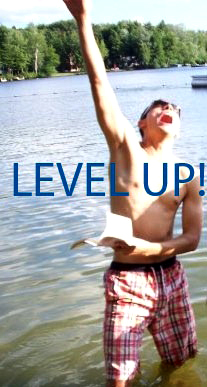The New Grading System: Trading Letters for Experience Points
July 10, 2011
Published: April 22, 2010
Every semester we turn the syllabus over to see the percentage that each dreaded assignment contributes to our final grade. Doing the math ahead of time, we try to find out how we can make it past a poor paper grade and still get that A.

But this process—papers, exams and presentations—is not a college student’s dream. What’s a solution to break this monotony? Video games! Well, at least according to Lee Sheldon, professor of telecommunications at Indiana University.
Sheldon has implemented a new grading system based entirely on the video game “World of Warcraft,” with which students accumulate “experience points” over the course of the semester. They begin with zero points, equivalent to an F on the traditional grading scale, and work their way up. With this system, class presentations are replaced with “quests,” exams with “fighting monsters,” group projects with “guilds” and assignments become “crafting.”
It is an untraditional grading system, but Sheldon believes it is a revolutionary way to get students involved in their classes and motivate them to perform to the best of their abilities.
His reasoning as to why such a system would be effective is simple. “The elements of the class are couched in terms [the students] understand, terms that are associated with fun rather than education,” he told ITnews. “We are teaching the gamer [and the] social networking generation.”
The system is having success with students in Indiana, but would a system like this work at Fordham College at Lincoln Center (FCLC)?
“I’m not exactly a gamer, so I doubt that the specific video game references would inspire me to work harder,” said Diana Kokoszka, FCLC ’12.
“I don’t think it makes much of a difference. I think students will do the same amount of work regardless of whichever system a professor has. I do think it’s slightly strange that the Indiana professor is getting his ideas for teaching from video games,” said Monica Hanna, FCLC ’12.
“I think that this system has its pros because this generation of students are very video-game-oriented, which can work as motivation,” said Stephanie Chase, FCLC ’13. “It can also give students a better idea of what their grades will be.”
If Sheldon’s goal is to get students motivated, it may take more than catchy names to keep them interested.
“I think the whole American grading system is a hot mess. I think [this system] is unrealistic because I don’t think students would take it seriously. But let’s be real; professors make up their own grading systems all the time,” said Matt Anderson, FCLC ’12.
“Exams are not a sufficient means of grading how much you know but how well you prepared for that specific teacher’s examination,” said Anthony McGowan, FCLC ’11. “I’d rather be graded on how much I didn’t know at the beginning of the semester in comparison to what I walked away with at the end of the semester.”
While the response among students is mixed, it seems professors are hesitant when it comes to Sheldon’s new system.
“It is silly to rename everything. When I give a test, students are starting at zero and trying to reach 100 points by answering questions correctly. Calling the test ‘a fighting monster’ and the points ‘experience points’ doesn’t change much,” said Leonard Nissim, professor of mathematics at FCLC. “Any reasonable system of grading could be implemented if the faculty of that academic unit wanted it. I wouldn’t vote for this one in a department meeting.”
Despite its unconventional origin and quirky components, some appreciate Sheldon’s desire to try something different.
“Being innovative is not very difficult to do, and [it’s] really essential to keep teaching fresh, but apart from the personal incentive there aren’t many institutional incentives to develop your teaching style. Teaching is still very much the taken for granted part of teaching, administration and research,” said Chris Toulouse, professor of international studies at FCLC. “You can do a lot like I do with my field trips and group video projects, but it takes a lot of time on my part and hard work on the part of the students. The reason my classes seem like a lot more work is because they are.”
“I think it’s great that professors are looking for new ways to relate classwork to their students,” Kokoszka said. “I definitely think that more Fordham professors should consider alternative teaching methods to keep classes interesting.”











